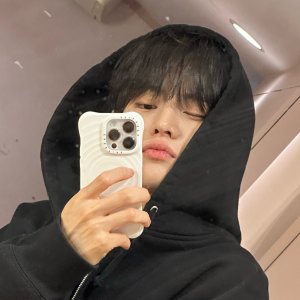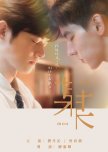welcome home, where you belong :)
I had my reservations about watching The On1y One because I hadn't ventured much into Taiwanese BL dramas before; most of my experience came from Korean and Thai BLs. Plus, I had already seen spoilers floating around TikTok and Twitter, so I knew the general plot. But I’m glad I took the plunge to watch it. I ended up being quite invested in this drama, watching it as after everything was released because I don’t have the patience to wait for weekly episodes, but this was worth it. I was initially concerned about the “brother-turned-lovers” trope and how it would be received, but to my surprise, the series handled it in a refreshingly subtle way. It's now tied with Love for Love’s Sake and My Stand-In as one of my favorite BL dramas this year.
I thought the main conflict would focus heavily on their romance and how being "brothers" might affect the family, but the show took a much more toned-down approach than I anticipated. This subversion of expectations felt refreshing. Instead of over-dramatizing their relationship, the story balanced emotional depth and subtlety in a way that felt new and welcome.
If I were to compare this to another series, it reminds me of The Trainee with OffGun in terms of vibe. It’s not a typical BL where everything is centered around romance. It leans more into a "coming-of-age" story, but with a much bigger emotional depth. The drama captures raw, real moments, and the emotional buildup pays off well with each episode. Every character development felt organic, and it never felt too heavy-handed.
Jiang Tian, portrayed by Benjamin Tsang, is an incredibly layered character. He carries so much emotional baggage—trauma, defenses, and personal reservations—that he inflicts on himself. His complexity unfolds piece by piece throughout the series, with the “Jiang Tian’s Very Moment” segments at the end of each episode giving more insight into his emotional state. It never felt like the show was just telling us who he is; we truly got to understand him. Tsang’s portrayal is subtle yet powerful. His smiles are rare but genuine, and his emotional breakdowns are heart-wrenching, leaving me teary-eyed at times. His performance is a masterclass in emotional intricacy.
Sheng Wang, on the other hand, seems straightforward but has his own complexities. He’s more open with his feelings, particularly toward Jiang Tian, but he also has his share of emotional struggles. On the surface, he’s carefree and outgoing, but dig deeper, and you see someone who’s also reserved and introverted in his own way. His character development, especially the way he handles failing his test, was executed beautifully, and it added depth to his relationship with Jiang Tian.
Benjamin Tsang and Liu Dong, who play the leads, are exceptional in their roles. As someone who watches a lot of BL dramas, I can confidently say their performances were among the best I’ve seen this year.
The slow-burn romance trope was executed perfectly. The tension, especially during key moments, was palpable. Beyond the romance, the series explored various themes like familial pressure, school toxicity, and competition. It covered a lot of ground without feeling overwhelming. The pacing was gradual, and everything felt meaningful.
I also appreciate that the school setting wasn’t just a backdrop. It was integral to the story. You could feel the stress of exams, the pressure of maintaining grades, and the competitive environment between classmates. The school events, like the sports festival, were woven into the plot effectively, making the setting feel authentic and lived-in.
At its core, this drama is about understanding the complexities of life and how our decisions impact not just ourselves but those around us. Jiang and Sheng moving in together caused both of them to confront their own issues. Tian felt trapped, and Wang struggled with his father trying to replace his mother. Yet, over time, these tensions brought them closer. Even Wang's intentional test failures affected their dynamic, driving a wedge between them and forcing them to reevaluate their relationship. These small moments added layers to the story, making it more than just a love story.
The series isn’t solely about romance—it’s about healing. Tian and Wang heal each other in ways that are subtle but powerful. Wang’s friends play a crucial role in his emotional growth, and even the family members find ways to mend old wounds. This theme of healing is what makes The On1y One stand out.
If I had to nitpick, I’d say the production had some room for improvement. There were some awkward voiceovers, particularly with Jenny, and a few cinematography choices felt off, like the VFX in the first episode. These issues didn’t detract from the overall experience, but they were noticeable.
The casting was phenomenal. Every character, from the teachers to the students, had their moment. Even smaller roles, like Uncle Mute and Mr. Ding, felt integral to the plot. But I have to give special mention to Gao Tian Yang—his quirky and fun energy added much-needed levity to the series.
The ending left me a bit puzzled at first. It made me go, "Wait, that’s it?" But after reflecting, I saw how the lemon honey reference tied the story together, especially for Tian and Wang. It feels like they left room for a sequel or at least some special episodes, which I’d love to see.
Beyond the well-executed themes of healing and personal growth, there's an undeniable warmth and comfort that comes through. Despite the emotional struggles and complexities, the characters and their journeys give off a sense of familiarity and belonging. Watching The On1y One feels like coming home, where even through the ups and downs, there’s solace in knowing you’re understood.
This drama isn’t just about love—it's about finding where you truly belong, and that’s what makes it so special.
I thought the main conflict would focus heavily on their romance and how being "brothers" might affect the family, but the show took a much more toned-down approach than I anticipated. This subversion of expectations felt refreshing. Instead of over-dramatizing their relationship, the story balanced emotional depth and subtlety in a way that felt new and welcome.
If I were to compare this to another series, it reminds me of The Trainee with OffGun in terms of vibe. It’s not a typical BL where everything is centered around romance. It leans more into a "coming-of-age" story, but with a much bigger emotional depth. The drama captures raw, real moments, and the emotional buildup pays off well with each episode. Every character development felt organic, and it never felt too heavy-handed.
Jiang Tian, portrayed by Benjamin Tsang, is an incredibly layered character. He carries so much emotional baggage—trauma, defenses, and personal reservations—that he inflicts on himself. His complexity unfolds piece by piece throughout the series, with the “Jiang Tian’s Very Moment” segments at the end of each episode giving more insight into his emotional state. It never felt like the show was just telling us who he is; we truly got to understand him. Tsang’s portrayal is subtle yet powerful. His smiles are rare but genuine, and his emotional breakdowns are heart-wrenching, leaving me teary-eyed at times. His performance is a masterclass in emotional intricacy.
Sheng Wang, on the other hand, seems straightforward but has his own complexities. He’s more open with his feelings, particularly toward Jiang Tian, but he also has his share of emotional struggles. On the surface, he’s carefree and outgoing, but dig deeper, and you see someone who’s also reserved and introverted in his own way. His character development, especially the way he handles failing his test, was executed beautifully, and it added depth to his relationship with Jiang Tian.
Benjamin Tsang and Liu Dong, who play the leads, are exceptional in their roles. As someone who watches a lot of BL dramas, I can confidently say their performances were among the best I’ve seen this year.
The slow-burn romance trope was executed perfectly. The tension, especially during key moments, was palpable. Beyond the romance, the series explored various themes like familial pressure, school toxicity, and competition. It covered a lot of ground without feeling overwhelming. The pacing was gradual, and everything felt meaningful.
I also appreciate that the school setting wasn’t just a backdrop. It was integral to the story. You could feel the stress of exams, the pressure of maintaining grades, and the competitive environment between classmates. The school events, like the sports festival, were woven into the plot effectively, making the setting feel authentic and lived-in.
At its core, this drama is about understanding the complexities of life and how our decisions impact not just ourselves but those around us. Jiang and Sheng moving in together caused both of them to confront their own issues. Tian felt trapped, and Wang struggled with his father trying to replace his mother. Yet, over time, these tensions brought them closer. Even Wang's intentional test failures affected their dynamic, driving a wedge between them and forcing them to reevaluate their relationship. These small moments added layers to the story, making it more than just a love story.
The series isn’t solely about romance—it’s about healing. Tian and Wang heal each other in ways that are subtle but powerful. Wang’s friends play a crucial role in his emotional growth, and even the family members find ways to mend old wounds. This theme of healing is what makes The On1y One stand out.
If I had to nitpick, I’d say the production had some room for improvement. There were some awkward voiceovers, particularly with Jenny, and a few cinematography choices felt off, like the VFX in the first episode. These issues didn’t detract from the overall experience, but they were noticeable.
The casting was phenomenal. Every character, from the teachers to the students, had their moment. Even smaller roles, like Uncle Mute and Mr. Ding, felt integral to the plot. But I have to give special mention to Gao Tian Yang—his quirky and fun energy added much-needed levity to the series.
The ending left me a bit puzzled at first. It made me go, "Wait, that’s it?" But after reflecting, I saw how the lemon honey reference tied the story together, especially for Tian and Wang. It feels like they left room for a sequel or at least some special episodes, which I’d love to see.
Beyond the well-executed themes of healing and personal growth, there's an undeniable warmth and comfort that comes through. Despite the emotional struggles and complexities, the characters and their journeys give off a sense of familiarity and belonging. Watching The On1y One feels like coming home, where even through the ups and downs, there’s solace in knowing you’re understood.
This drama isn’t just about love—it's about finding where you truly belong, and that’s what makes it so special.
Cet avis était-il utile?







